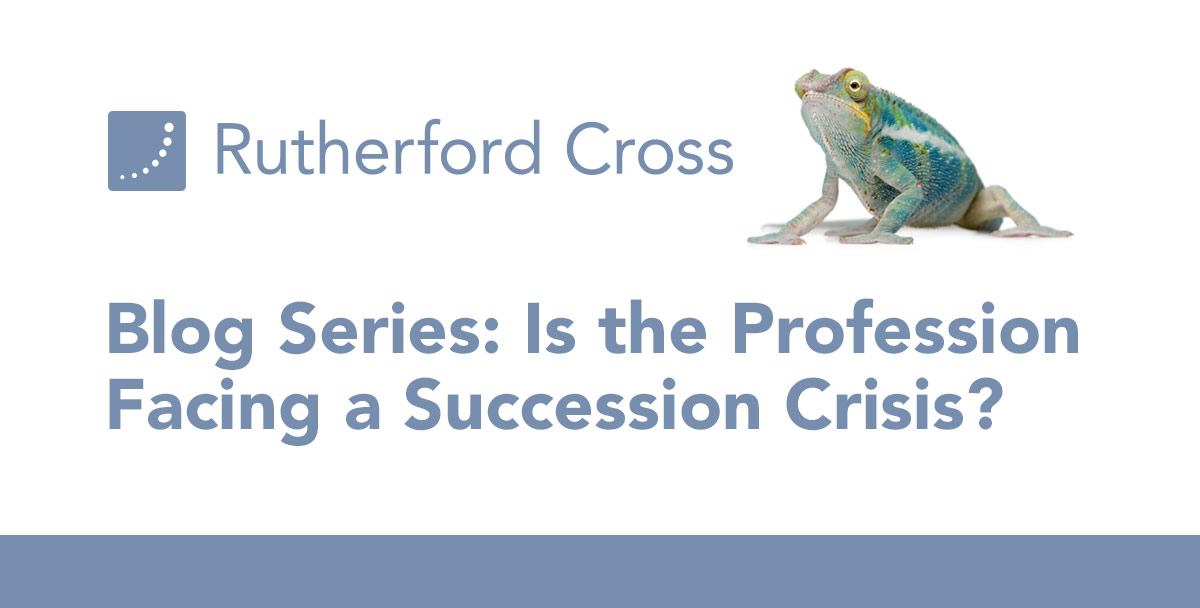Throughout our blog series, we have looked at the various challenges facing succession within the accountancy profession. In our very first post on the topic, we revealed that our study, carried out in conjunction with University of Strathclyde Business School in 2017, had found that 71% of millennial accountants working in practice did not currently aspire to be a Partner in the future. We now look further as to why the Partner role may not be as attractive to the millennial generation, and discuss that perhaps the model of partnership itself is to blame.
In the survey of over 150 millennial accountants working in regional firms in the UK, Rutherford Cross’ study found common themes including:
1. A sentiment that having a large leadership team consisting of equity partners sitting at the top of a rather hierarchical (and often patriarchal) structure was distasteful in the eyes of millennials who value equality and reward commensurate with perceived input
2. The career path to Partner was viewed as increasingly difficult and something only achievable by a rare few. The “up or out” tournament still commonly being in place, millennials had viewed their superiors try, fail, and move on – thereby influencing their own aspirations
3. In the current environment there appeared to be a focus on short term profit extraction rather than a strategy to build legacy through the development of future talent
When taking in to account the millennial generation’s propensity to work for ‘more than a pay cheque’ this leads to a question as to whether there needs to be a fundamental shift in the way accountancy firms are organised.
Of course, the dilemma of the partnership structure and its alternatives is prevalent in all professional services types organisation where ‘value’ is based on expert knowledge and the social capital of individuals’ networks. Lawyers, architects and management consultancies face a similar conundrum in retaining top talent if the door to Partnership is hard to push open.
There are examples in the legal profession where ABS structures and public offerings have had some success. Similar examples in the accountancy profession are limited despite the argument that these alternative structures offer better opportunities for growth and collaboration, which literature tell us is what the millennial generation wants.
The traditional partnership model will no doubt continue to dominate the accountancy profession in the UK for years to come but as competition becomes more intense, more business-centric and people-centric methods of delivering accountancy services may gradually force a change. Considering millennials will make up more that 50% of the overall workforce in the UK by 2025 their expectations may force the issue of whether the partnership model of governance in accountancy firms is flawed.
We’d like you to get involved in the conversation. We’d like to know:
· Do you aspire to be a Partner in practice?
· Why are you or your peers choosing to leave the profession?
· What skills do you think future leaders in the profession need?
· Is the business model of Partnership attractive to you?
Join in the conversation at @RutherfordXNW using #nextgenleaders #shapingtheprofession #Partnersofthefuture
Sandra McKinnon is a specialist recruiter based in Manchester. She has 13 years’ experience of recruiting practice accountants across the UK. Sandra completed an academic MBA thesis at the University of Strathclyde in 2017 entitled “The Succession Planning Crisis in Regional Accountancy Firms” and she works professionally with individuals and firms to advise on career development and talent acquisition.
A full copy of the study is also available on request – [email protected]







